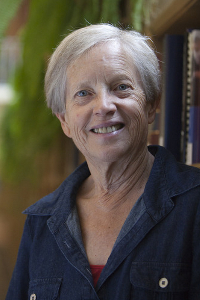Symposium scrutinizes Quebec Charter of Values
March 6, 2014
Share
By Meredith Dault, Senior Communications Officer
 Professor Beverley Baines
Professor Beverley Baines For Professor Beverley Baines, Quebec’s proposed Charter of Values is problematic in more than a few ways.
“I have two conclusions about it,” she explains. “One is that it is not a Charter of Rights – it’s a Charter of Obligations. And the second is that it infringes on two existing charters, the Canadian Charter of Rights and Freedoms, and the Quebec Charter of Human Rights and Freedoms.”
A professor in the Faculty of Law who is cross appointed to the Department of Gender Studies and the School of Policy Studies, Professor Baines says that the proposed Charter of Values, which would ban public sector employees from wearing overt religious symbols, simply doesn’t stand up against the existing charters.
“As well as infringing on freedom of religion, the secular charter is racist and sexist,” she says.
Professor Baines will explain her views as part of a symposium exploring the Quebec Charter of Values on Friday, March 7. Organized in honour of International Women’s Day, the symposium will delve into themes of equality, religion and culture.
Professor Baines will be joined by Julie Latour, former co-chair of the Women Lawyers Forum of the Canadian Bar Association – Quebec Division, and a member of the Quebec and New York State Bars. Ms. Latour will lead the discussion by providing context for the government’s decision to implement the charter, also known as Bill 60, which seeks to advance equality between women and men and to more clearly distinguish between church and state.
But in Quebecois culture, which is already steeped in religious symbolism, Professor Baines says the separation is difficult to make. Instead, she says the proposed charter could cause harm, particularly for Muslim women who opt to wear the hijab (headscarf) or niqab (which partially covers the face). Professor Baines is concerned that women will be expected to reveal their faces in order to work in the public sector or to receive public services.
“There have been lots of stories in the press about how these women will either be driven back into their homes, or will have to move to some other province in Canada in order to seek employment or government services,” she says. Professor Baines says that while some have argued the charter will free women from wearing what has been argued is restrictive and sexist clothing, a recent study of Muslim Quebecers asserts many women wear it voluntarily, rather than being forced into it by family members.
“Muslim women will no longer be given accommodation in Quebec,” she says.
Professor Baines believes the problem is exacerbated by the government’s hypocritical stance with Bill 60, which protects Catholic symbols as it targets others.
“It protects the cross that hangs in Quebec’s National Assembly and it leaves symbols of the bleeding heart, etc. in libraries and other municipal buildings, which it does by renaming them as cultural symbols, rather than religious ones,” she says, explaining that the charter also won’t affect place names with heavily religious connotations. “And none of that will be touched in a charter that is trying to separate church and state.”
Equality, Religion and Culture: A Symposium on the Quebec Secular Charter takes place on Friday, March 7, from 2:00 – 3:30pm in Room 202, Macdonald Hall.
The symposium is organized by the Equity and Women’s Concerns Committee of the Department of Philosophy.
The event is free and all are welcome to attend.